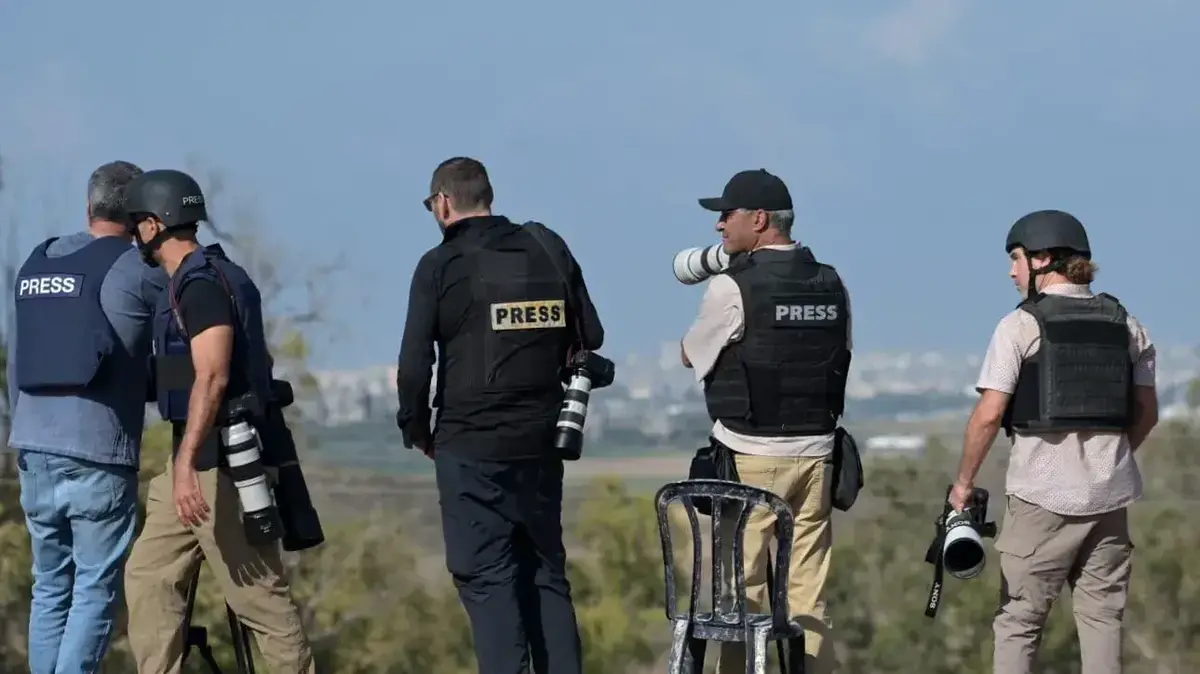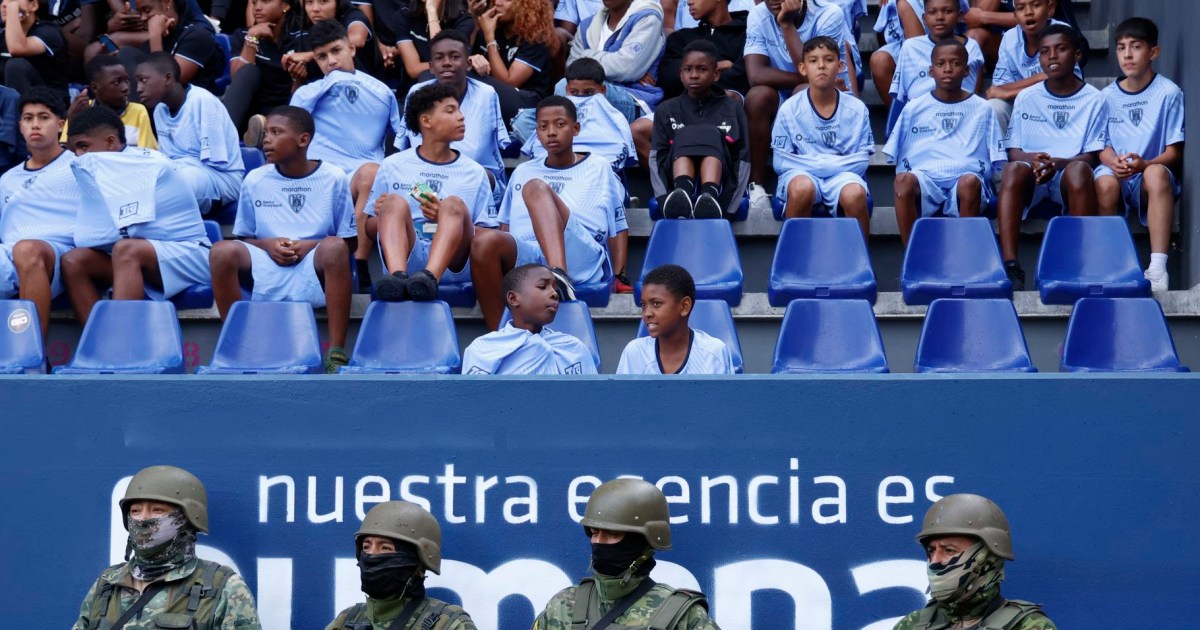This is the web version of Americanas, the EL PAÍS America newsletter that addresses news and ideas with a gender perspective.
If you want to subscribe, you can do it at this link.
We journalists are not usually at the center of the news, however, I think it is very important that we talk about the increase in violence against colleagues in Mexico.
Violence against women journalists has been a constant for the last decade, but it is striking that it has skyrocketed in the last three years, according to a recent report published by the CIMAC organization.
What I want to talk about today is nothing new, taking into account that Mexico is one of the most violent countries in the world to practice journalism.
However, attacks, harassment and digital violence against women journalists have become more and more serious.
CIMAC's Freedom of Expression and Gender program records and documents cases through media monitoring, interviews, and data sharing with networks of women journalists and human rights defenders in the country.
And the findings are alarming.
If the 248 attacks suffered by journalists in the first three years of Enrique Peña Nieto's six-year term are compared with the 767 cases of Andrés Manuel López Obrador's three-year term, the increase in these attacks is 209.27%.
There is something that catches our attention.
While the attacks directed against male journalists are limited to their professional environment, those carried out against female journalist colleagues are mostly accompanied by a misogynistic and sexist charge that seeks to silence them.
For this, it seeks to end their dignity, undermining them in the most intimate and personal.
CIMAC documented that in 78.74% of the attacks against journalists psychological violence, threats, intimidation, harassment and discrediting the work are present, which can lead to smear campaigns.
The report includes the testimony of several journalists who tell in their own words what these attacks on the free exercise of their profession have been: death threats, messages with sexual content, disclosure of personal information and intimidation against their families.
Like the case of Reyna Haydee Ramírez, a reporter from Sonora who received strong threats after questioning President López Obrador during a morning conference.
"They have censored, blocked and prevented me from accessing the National Palace," the journalist said in a testimony.
"I find it shameful that the president has fallen for this program of
Who's who in the lies
because he uses it to stigmatize and to attack.
[After questioning him] I received a lot of criticism on Twitter and of course it affects you and impacts you because a word from the president is an order to attack those who don't agree with him,” added Ramírez.
According to the data presented by CIMAC, it is the reporters who cover the political source that receive the most attacks for doing their job (54.49%), followed by media directors (14.86%) and columnists (8% ).
A year ago I told you in EL PAÍS how Mexican columnists denounced this same violence that, not because it is virtual, contains less danger.
Political scientist Denise Dresser, for example, was booed at a march on October 2 by supporters of Morena, the president's party.
She herself acknowledges that technologies have amplified the hate messages against her that have increased since López Obrador came to government.
“We live in an era of political polarization where it is all too common to discredit the messenger with misogynistic comments, instead of listening to the message,” says Dresser.
These expressions of hate pass through the sexual plane: "crazy", "spoiled", "old", "ugly"... The attack, mainly by male users, reduces women to a body that they threaten to rape, murder, or denigrate in great detail.
And unfortunately it is an international trend.
According to UNESCO, 73% of journalists in the world receive cyberbullying for doing their work.
“It is a common way of discrediting women in the public space for thousands of years, although we had not experienced it in this way in Mexico,” adds Dresser.
Cecilia Solís, a partner from Quintana Roo, was shot in the leg in 2020 when she was covering a feminist demonstration that was violently dispersed by the Cancun municipal police.
These attacks are directly related to the criminalization of the feminist protests that have been taking place in recent years by the different governments.
According to the recent report I was talking about at the beginning, feminist protests have become the main scenario where women in the union are subjected to violence, including photographers and cameramen with 13.16% of the attacks, followed by attacks against colleagues that investigate corruption issues (10.16%) and those that cover elections (7.56%).
So far this year alone, 17 journalists have been murdered in Mexico, including four women.
The general belief is that drug trafficking is usually behind the violence against reporters, however, organizations such as CIMAC and international organizations in defense of journalists' rights, such as Article 19, have been pointing out for years that those primarily responsible for these attacks are be officials of the municipal and state government order.
According to the CIMAC report, in 41.72% of the cases, federal, state and federal officials are behind the attacks against the journalists.
Of these crimes, more than 90% are never solved and if progress is made in the case, it is very difficult to find the masterminds.
I would like to close today with the words of the journalist Lydia Cacho, exiled from Mexico today for carrying out her work: “Feminism gave us life as professional truth tellers and political patriarchy, in all its forms, tries to take that life away from us. , dignity and freedom because they know that by silencing us they silence millions of victims of the cruelest forms of violence, discrimination, war and slavery”.
It took us many centuries to be able to use our voice.
Don't let these brave women go out.
For the companions who are no longer here and for all those who will come after us.
And finally, the recommendations of the week:
subscribe here
to the EL PAÍS México
newsletter
and receive all the key information on current affairs in this country





/cloudfront-eu-central-1.images.arcpublishing.com/prisa/6YVGDXFAWRX3CRBJPUPWBML5SI.jpg)






